
Entitlement Abolition
-By Doug Andrew
How to Lead Your Family
From "Me" to "We"
“The worst thing you can do for those you love is the things they could do for themselves.”
- Abraham Lincoln

Take the Abundant Living Index Assessment
Designed to give you insight into your level of confidence about your abundance, which includes your retirement, purpose, assets, and legacy. Just like with a GPS system, it’s important to assess where you are before you can make any progress in any area of life.
What Causes Entitlement?
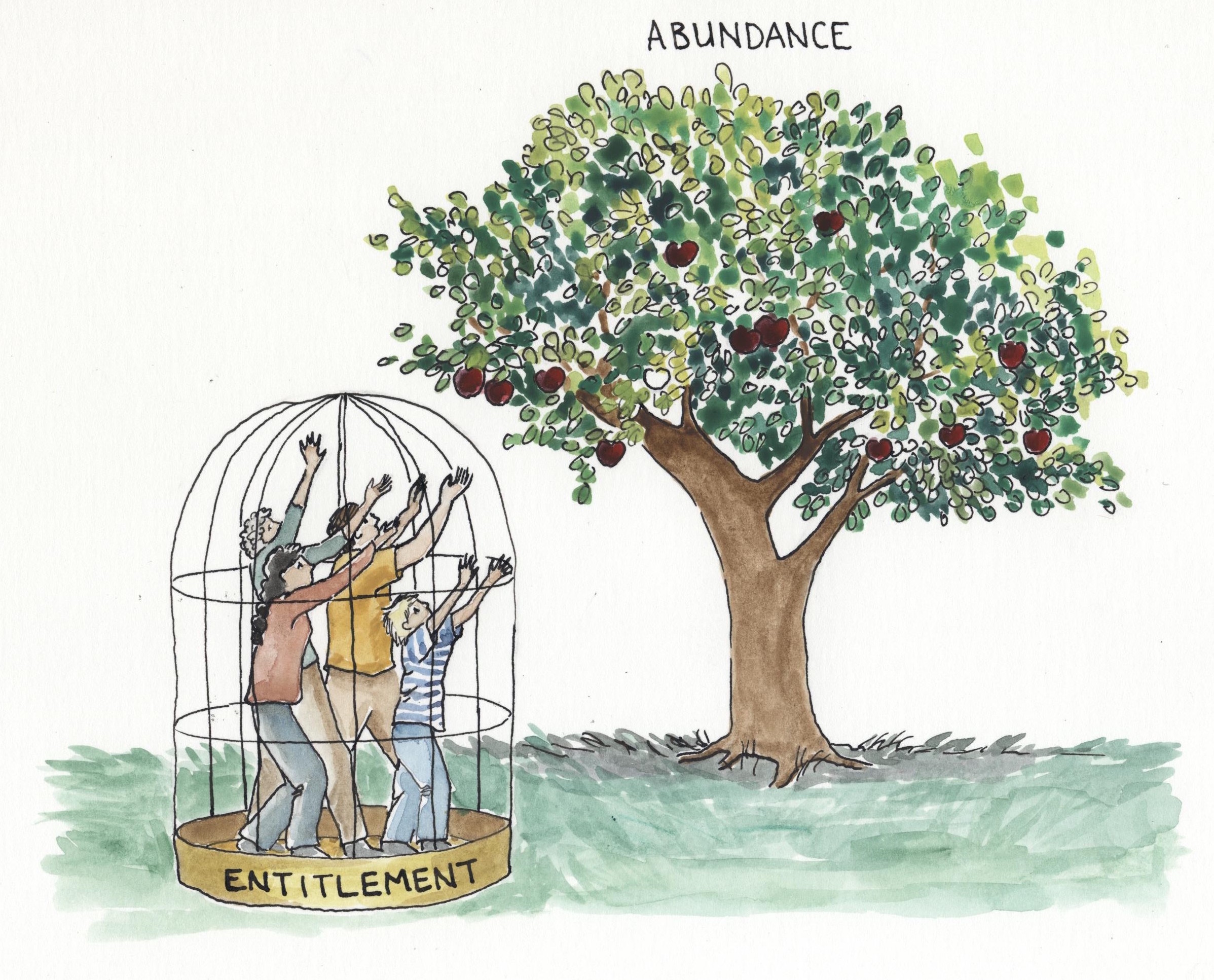
In Entitlement Abolition Doug Andrew shares that the rise and fall of many major civilizations, like the Roman Empire, hold a pattern that often happens in families today. It begins with a period of significant growth, an era filled with expansion in several areas: skills, wisdom, knowledge, affluence, and ways of living.
This leads to continued increase, with knowledge, influence and power spurring the development of even more knowledge, influence and power. Wealth and abundance abound … until entitlement creeps in.
The expansion in areas such as: skills, wisdom, knowledge, affluence, and ways of living can be re-labeled as something we like to call KASH or:
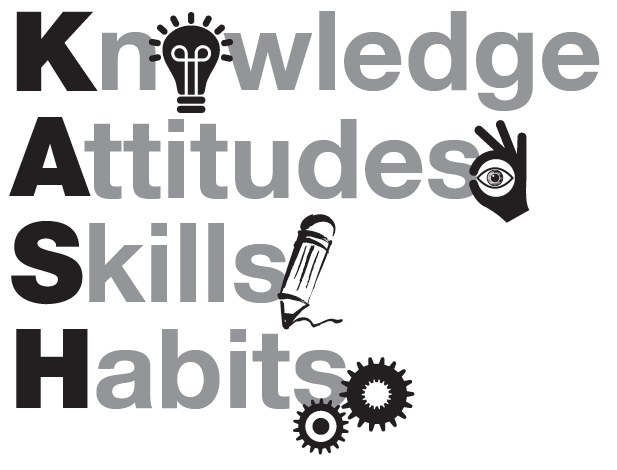
The Entitlement Cycle
As abundance and wealth become a part of everyday life, and everyone benefits. This is where things can take a wrong turn if families aren’t vigilant. Doug Andrew writes that if children aren’t required to practice responsibility, accountability, and financial partnership in things like pursuing education, purchasing cars or homes, or serving humanitarian or religious missions, they can become entitled.
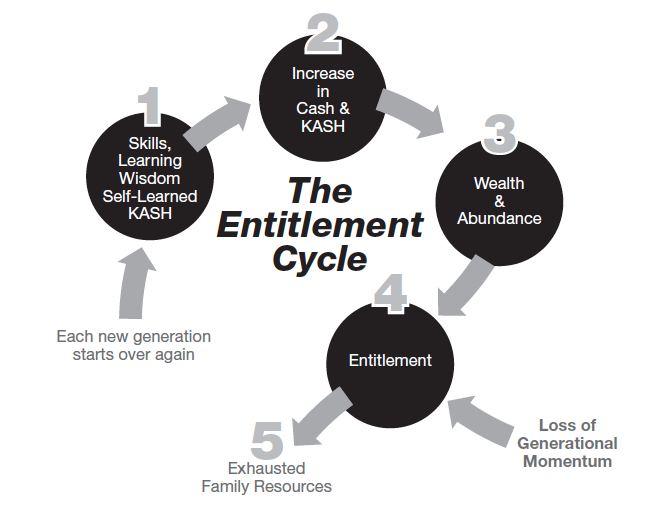
“It has left me with nothing to hope for, with nothing definite to seek or strive for. Inherited wealth is a real handicap to happiness.”
- William K. Vanderbilt, grandson of Cornelius Vanderbilt
The Better Path
Let’s compare the Entitlement Cycle now to the Abundance Cycle. You’ll notice the path is the same through the first three stages:
1. The development of KASH
2. The increase of KASH and cash
3. The prosperity of wealth and abundance.
Now, Stage 4 is where things can go right, instead of wrong. When families take proactive measures to reinforce an abundance mentality (more on this in Chapter 3) and instill accountability and responsibility, they are setting up the next generation for success in every aspect of life.
The next stage is where families establish a Legacy Bank, which is a conceptual bank where you can deposit the knowledge, experiences, strategies, and lessons learned by family members.
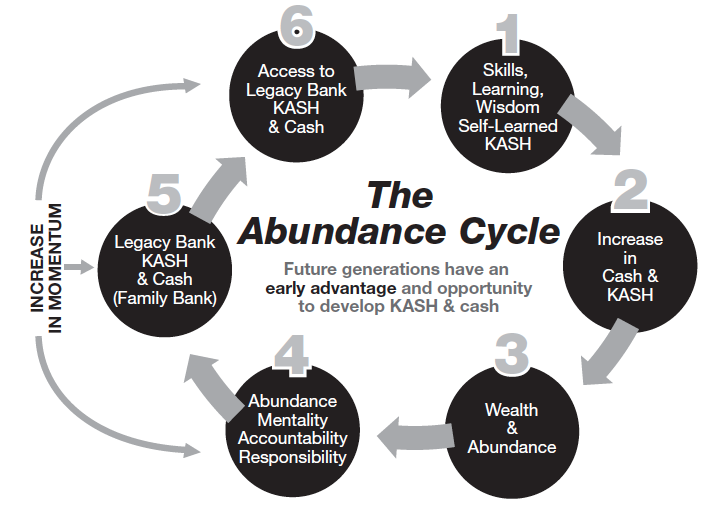
If planned and executed well, this Abundance Cycle can go on for generations to come. Having a functional Legacy Bank in place, with the family actively participating in contributing to and withdrawing from the bank, empowers future generations to have early access to moving forward in developing their own KASH and cash. Unlike the participants of the Entitlement Cycle, who had to start over from scratch.
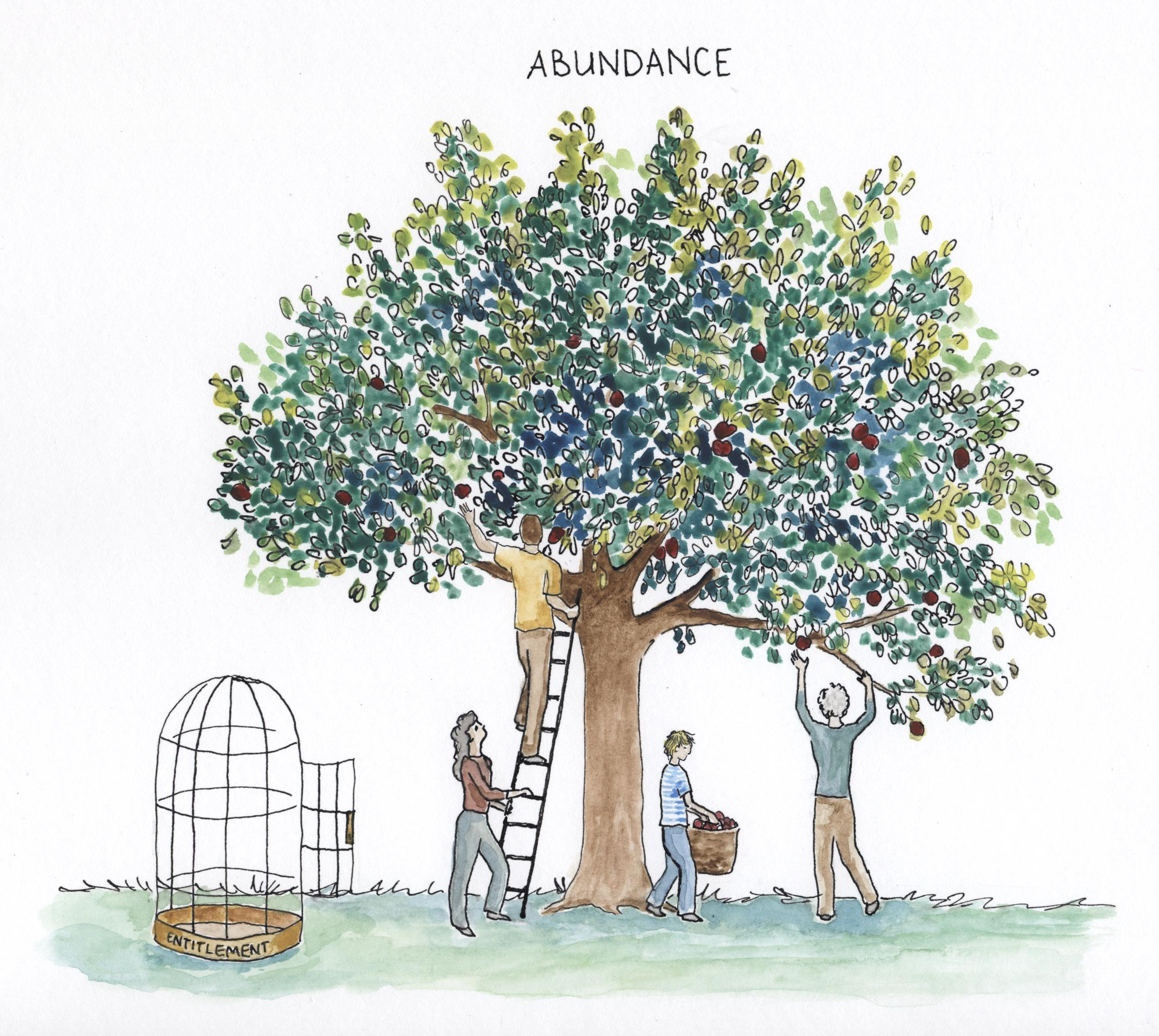
“When we replace a sense of service and gratitude with a sense of entitlement and expectation, we quickly see the demise of our relationships, society, and economy."
- Steve Maraboli
In this Book You'll Learn:
- The difference between a scarcity and abundance mindset
- The Three Dimensions of Authentic Wealth—especially the two Legacy Dimensions (Foundational and Intellectual)
- How to develop a KASH (Knowledge, Attitudes, Skills and Habits) Blueprint and develop a perpetual Legacy Bank
- How to hold Family Vacations with a Purpose
- How to make deposits and withdrawals from your family’s Legacy Bank
- How to rethink your thinking (and help your children do the same)
